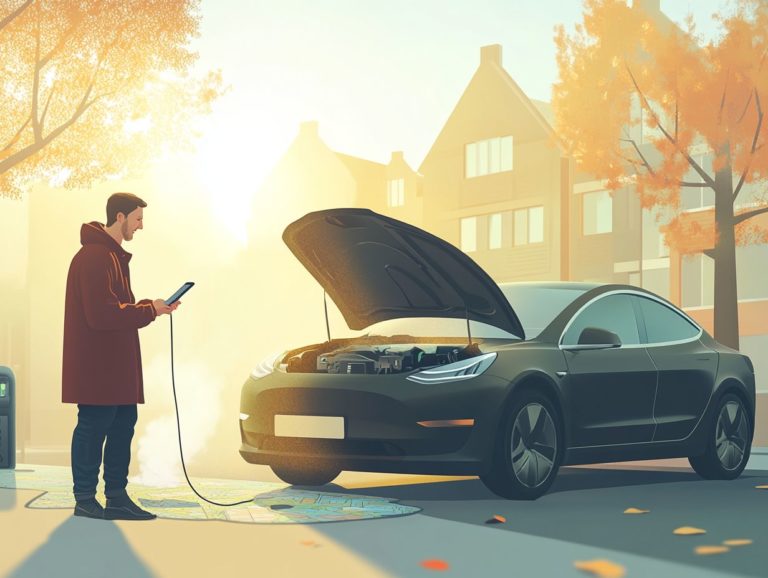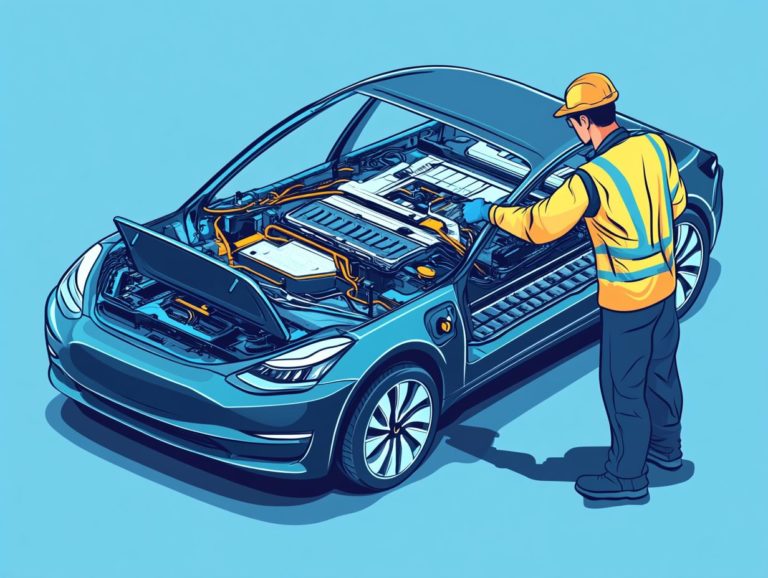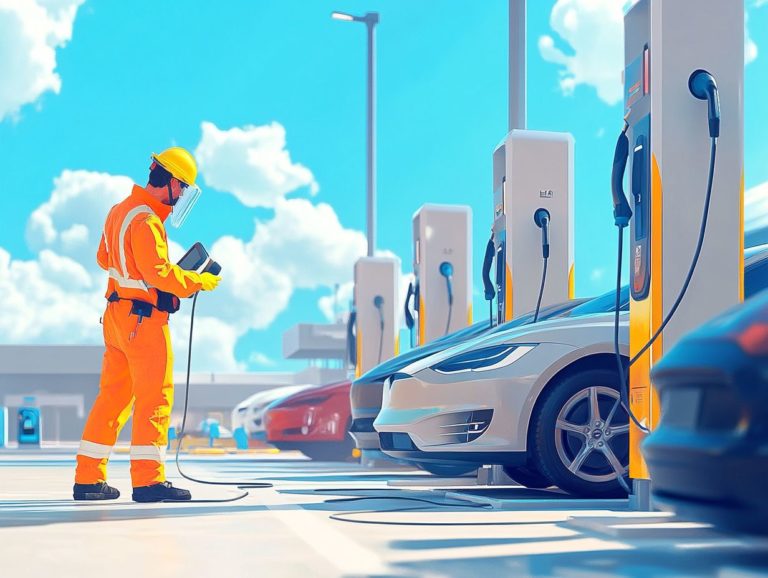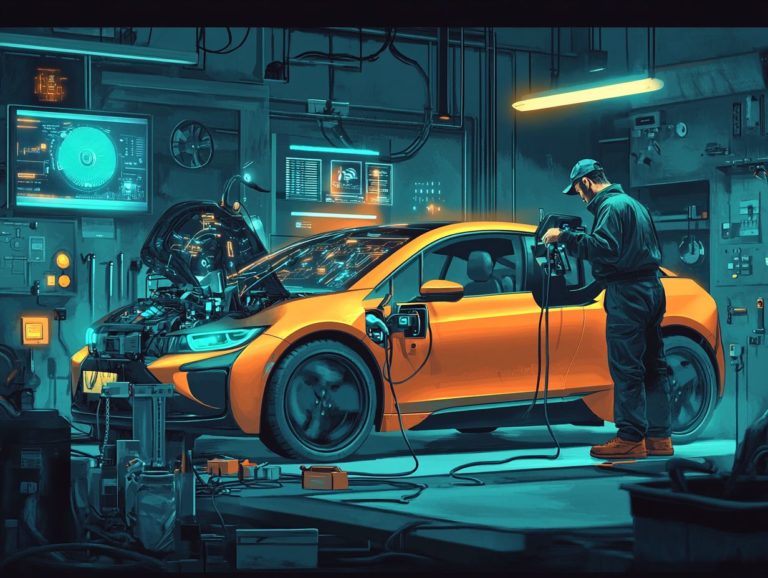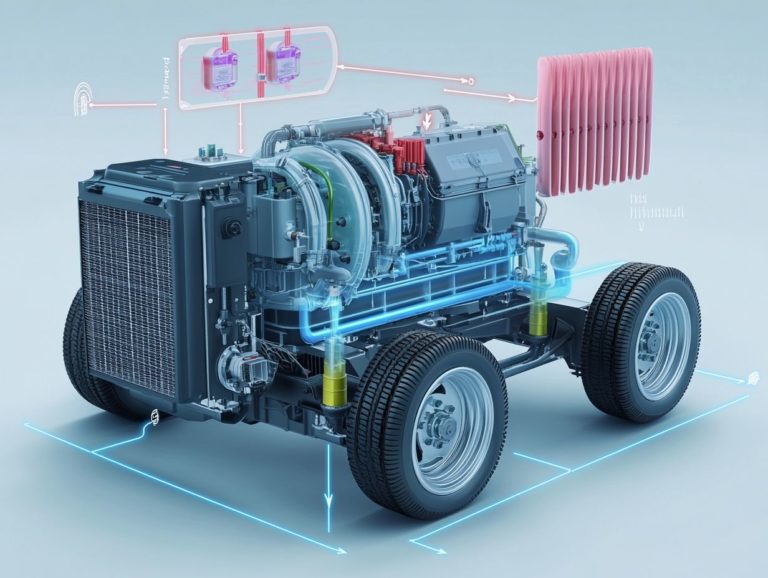how to handle minor repairs on your ev
Managing minor repairs can save you time and cash, ensuring your electric vehicle (EV) runs great. You will also find valuable tips on preventing minor repairs that will help keep your EV in top shape.
Jump in and learn how to keep your vehicle running smoothly!
Contents
- Key Takeaways:
- Common Minor Repairs for EVs
- Tools and Resources for DIY Repairs
- Safety Precautions for DIY Repairs
- When to Seek Professional Help
- Tips for Preventing Minor Repairs
- Frequently Asked Questions
- What are some common minor repairs that may need to be done on an EV?
- Do I need to take my EV to a specialized mechanic for minor repairs?
- How do I know when it’s time to do a minor repair on my EV?
- What safety precautions should I take when doing minor repairs on my EV?
- Can I use regular car parts for minor repairs on my EV?
- How can I learn how to do minor repairs on my EV?
Key Takeaways:
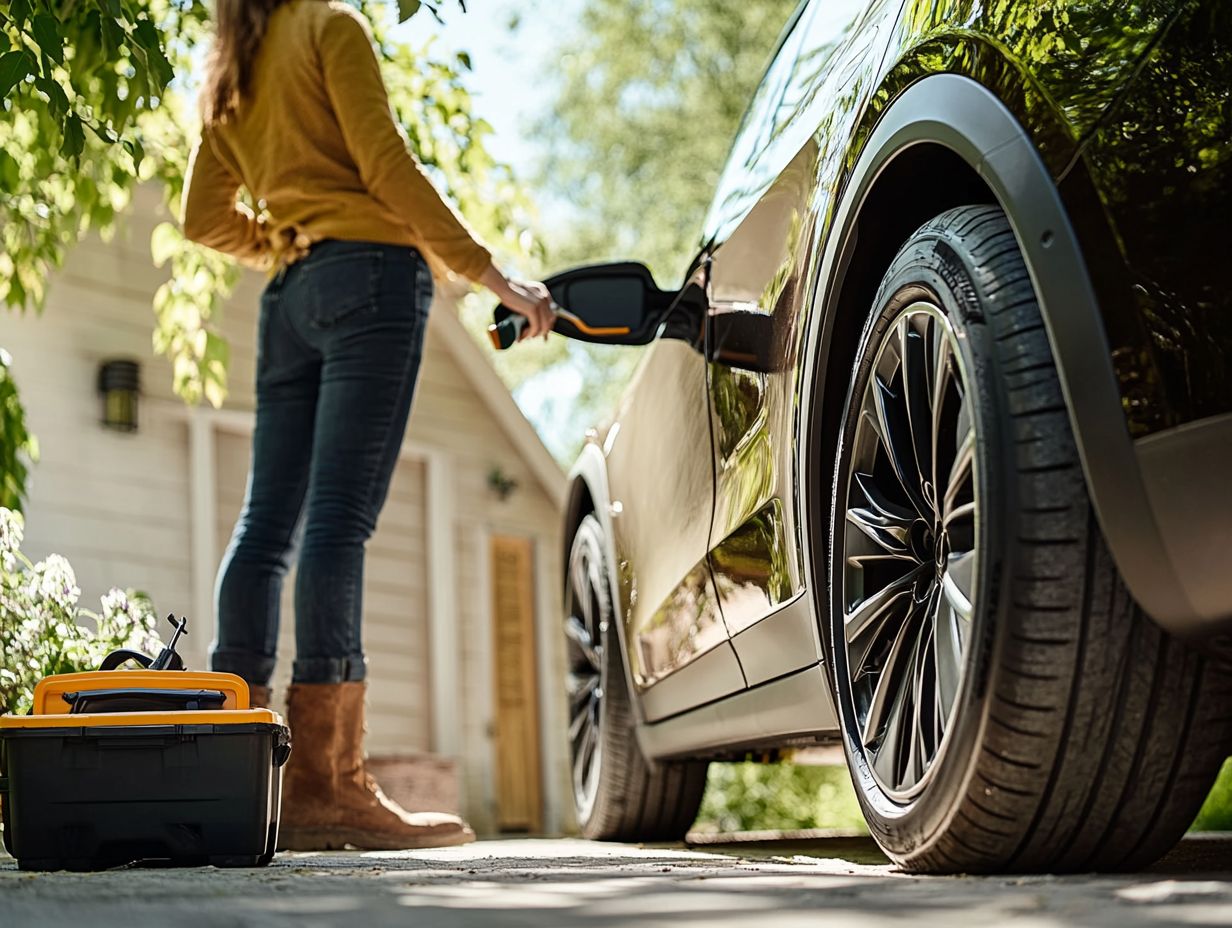
- Regular maintenance and small repairs can prevent major issues with your EV.
- Basic tools and troubleshooting techniques can help you handle minor repairs on your own.
- Prioritize safety when attempting DIY repairs and seek professional help when needed.
What Qualifies as a Minor Repair?
In the realm of electric vehicles (EVs), a minor repair includes simple maintenance tasks that don’t significantly compromise the vehicle’s overall functionality or safety. To learn more about the typical issues you might encounter, check out information on what are the most common EV repairs. These are the kinds of fixes you can often tackle yourself or with the help of a technician who doesn’t need a PhD in engineering.
They usually focus on aspects like battery upkeep, minor electrical wiring issues, or small collision damages that avoid high-voltage components or critical safety systems.
Common examples of these repairs include:
- Swapping out low-voltage fuses.
- Checking and tightening any loose connections.
- Managing software updates for onboard systems.
Technicians play an important role in these processes, ensuring that everything is completed safely and in line with the company that made your vehicle’s protocols. For example, a task as simple as a tire rotation that also aligns the electric steering system requires careful attention, as neglecting it could impact the vehicle’s performance.
Understanding the correct procedures safeguards your warranty coverage and ensures that your vehicle remains reliable and safe for your use.
Common Minor Repairs for EVs
Common minor repairs for electric vehicles (EVs) encompass a range of tasks that you, as an informed vehicle owner or technician, can tackle. These repairs often focus on the electrical system, ensuring optimal battery maintenance, and addressing basic collision damage, including how to maintain EV after a collision.
Troubleshooting and Fixing Issues
Troubleshooting and fixing issues in electric vehicles demands a methodical approach to uncover underlying problems, such as charging system glitches or battery degradation. Adhering to essential safety precautions is vital for both the vehicle and the technician.
This method goes beyond checking the obvious components; it requires a nuanced understanding of the vehicle s intricate electrical systems. Employing specialized diagnostic tools can effectively pinpoint malfunctions within electric motors, ensuring that your interventions are precise and impactful.
By meticulously following inspection procedures, you can minimize risks while ensuring that all safety guidelines are observed, preventing any accidents in the workspace. Each step significantly enhances the security and efficiency of the troubleshooting experience.
Tools and Resources for DIY Repairs
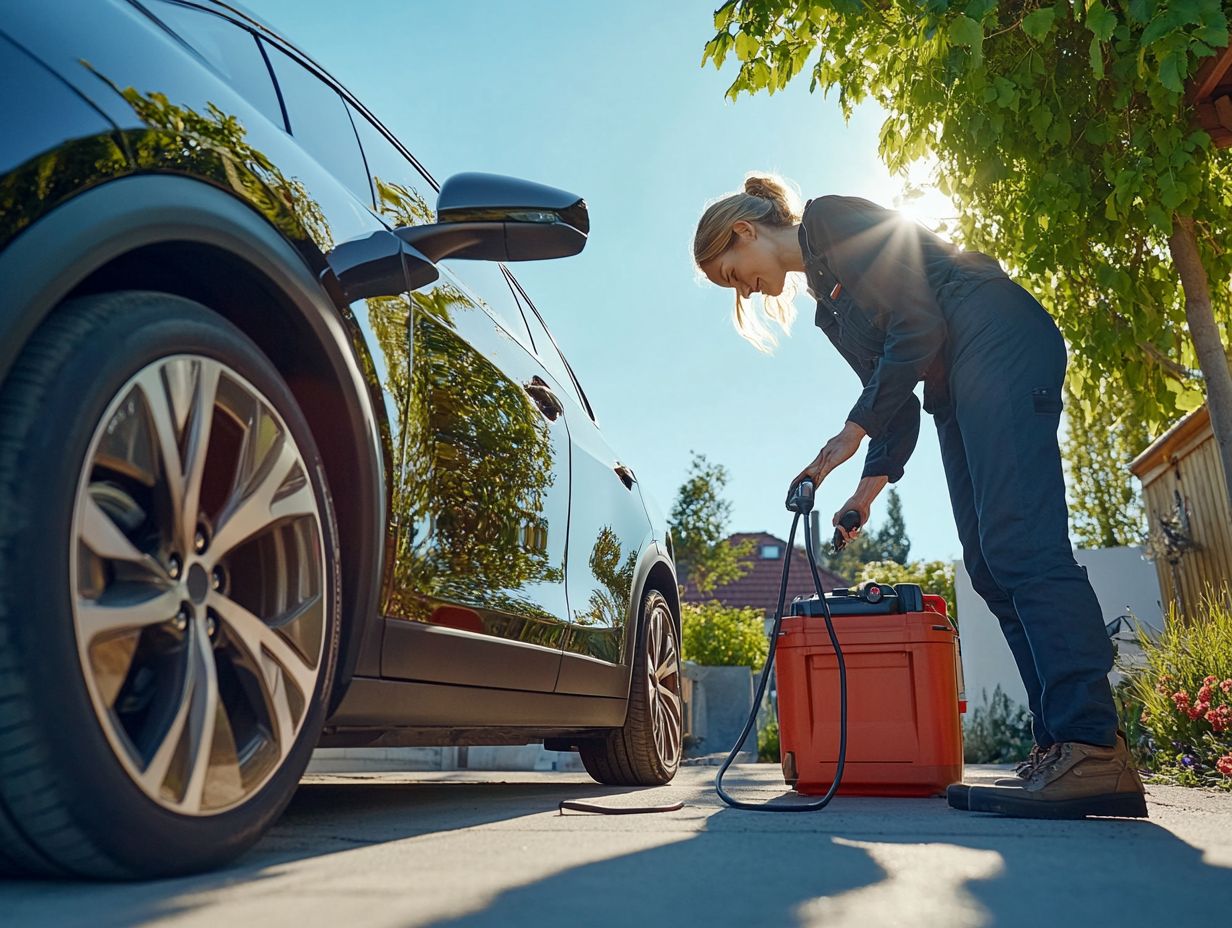
To successfully tackle DIY repairs on electric vehicles (EVs), it’s crucial to have the right tools at your disposal and access to trustworthy resources. Additionally, learning how to maintain your EV for longevity can be invaluable. Consider enrolling in training courses offered by I-CAR; these courses equip you with the essential skills needed for effective electric vehicle maintenance.
If you have any questions or would like to share your experiences with electric vehicle repairs, feel free to reach out!
Essential Tools and Where to Find Them
Essential tools for electric vehicle repair include multimeters, specialty wrenches, and diagnostic tools tailored to tackle common issues like charging system problems and electrical wiring challenges.
An OBD-II scanner is a tool that reads your vehicle’s error codes. It helps you diagnose issues and update software to improve performance.
For monitoring battery health, tools such as thermal cameras and battery analyzers provide precise assessments of the battery’s condition. You can find these specialized tools at automotive supply stores or on online platforms like Amazon and retailers like EV West.
Knowing how to use these instruments streamlines your repair process. It also helps keep your EV in peak condition, boosting its longevity and performance while minimizing any downtime.
Safety Precautions for DIY Repairs
When you embark on DIY repairs for electric vehicles (EVs), it’s crucial to adhere to stringent safety precautions. This approach mitigates risks associated with high voltage systems and safeguards both your well-being and the integrity of the vehicle. Additionally, following tips for keeping your EV in top shape can enhance your maintenance efforts.
Protecting Yourself and Your Vehicle
Protecting yourself and your vehicle during repairs requires a keen awareness of the challenges presented by electrical systems. Strict adherence to established safety protocols prevents accidents and ensures effective repairs.
Implementing power-down procedures before working with high-voltage systems reduces the risk of electric shock. Use insulated tools designed for automotive work to prevent accidental contact with live circuits.
Wearing personal protective equipment, such as gloves and goggles, is essential for your safety.
Furthermore, maintaining a clean and organized workspace minimizes distractions and potential hazards, ensuring that both you and the vehicle remain safeguarded throughout the repair process.
When to Seek Professional Help
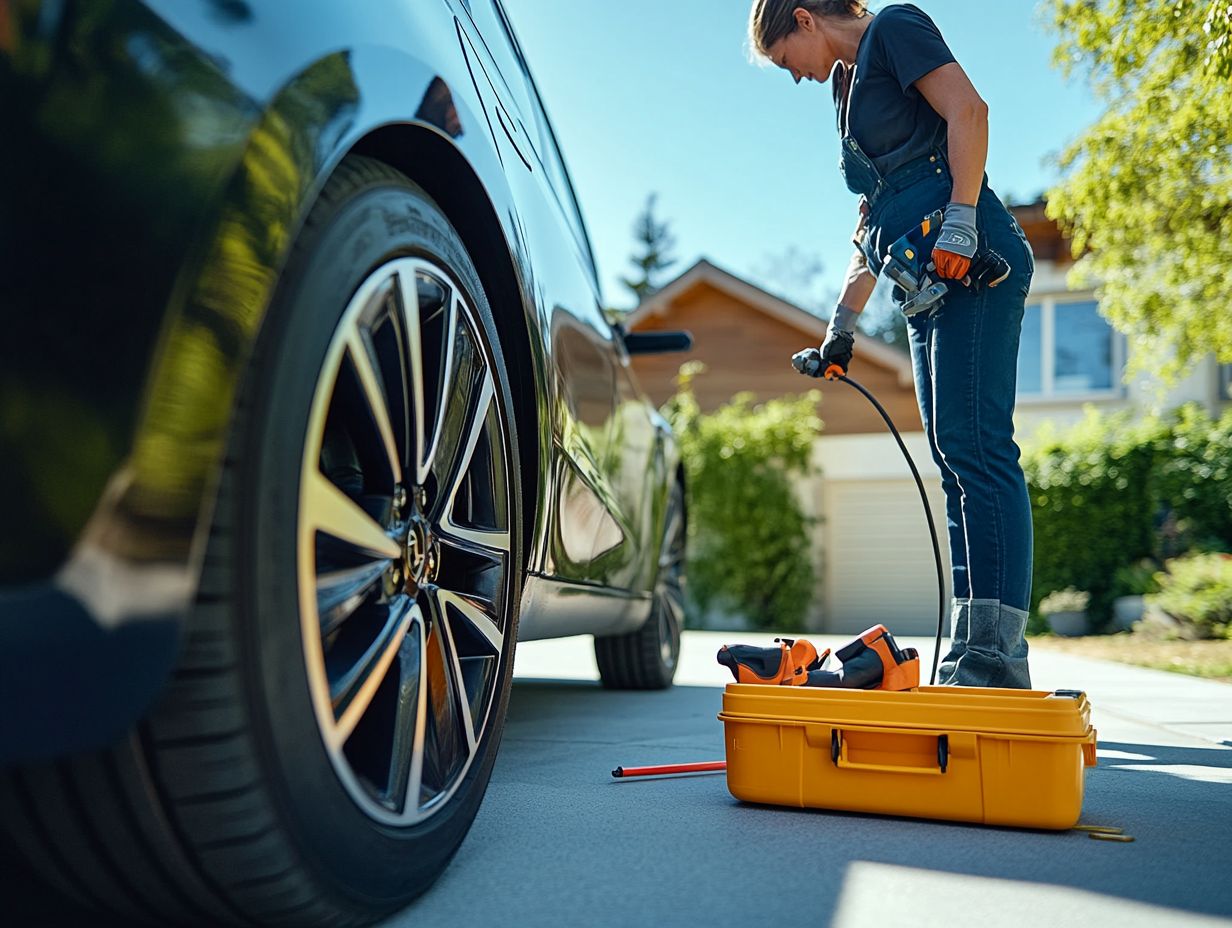
Understanding when to seek professional assistance for electric vehicle repairs is essential. It’s particularly important when you notice signs that suggest the problem could involve intricate systems, such as high-voltage components, or substantial collision damage that necessitates specialized expertise.
Don’t wait until problems escalate recognizing when to seek professional help can save you time and money!
Recognizing these indicators ensures that your vehicle receives the careful attention it requires, preserving both its performance and your peace of mind.
Signs that a Repair is Beyond DIY
Signs that a repair is beyond your DIY capabilities often include ongoing issues like repeated charging system failures, battery degradation, or collision damage impacting high-voltage systems. Be on the lookout for several indicators that signal the need for professional intervention.
If you hear grinding or clicking sounds, or see warning lights on your dashboard, it s time to call in a professional. These signs indicate serious issues that require expert attention.
Additionally, certain software updates your vehicle requires often demand specialized tools and knowledge that only professionals possess.
Recognizing these indicators not only ensures your safety but also underscores the value of technician training in managing complex automotive repairs effectively.
Tips for Preventing Minor Repairs
Preventing minor repairs in electric vehicles (EVs) requires a proactive maintenance strategy. By prioritizing regular inspections, monitoring battery health, and adhering closely to manufacturer guidelines, you can learn how to safely maintain your EV at home to ensure optimal performance and longevity for your vehicle.
This attentiveness enhances reliability and elevates your driving experience.
By staying ahead of potential issues, you not only protect your investment but also enjoy a smoother, more reliable driving experience.
Maintaining Your EV’s Health
Keeping your electric vehicle (EV) healthy requires regular checks and maintenance of its electrical parts. This ensures that components like the battery and charging system work at their best.
Regular software updates are crucial for improving your vehicle’s performance and safety features. Periodic inspections help you spot potential problems early, which can save you time and money in the long run.
Monitoring battery performance is essential for a reliable driving experience. It also prevents small issues from turning into costly repairs.
Frequently Asked Questions
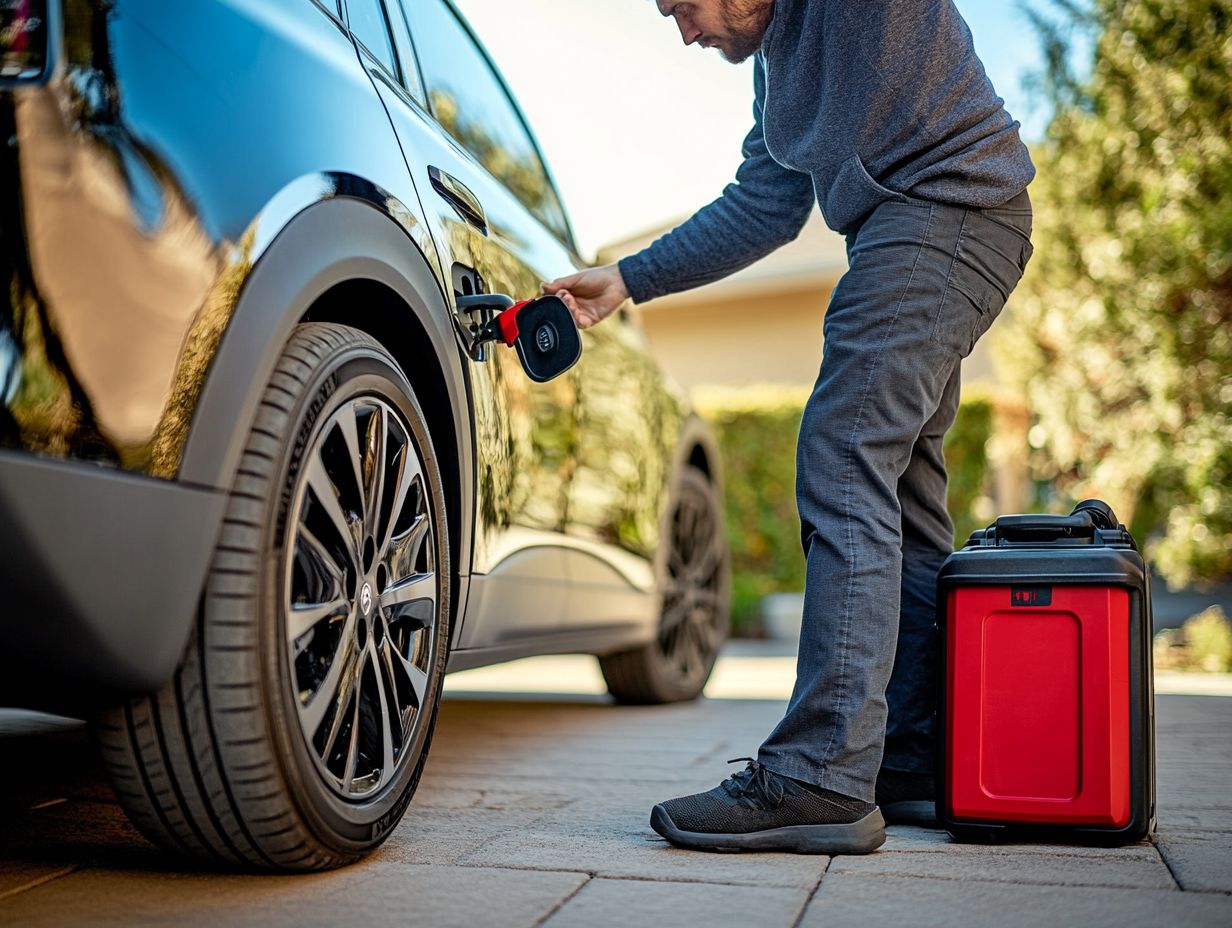
-
What are some common minor repairs that may need to be done on an EV?
Common minor repairs include replacing brake pads, changing windshield wipers, and fixing minor exterior dents or scratches.
-
Do I need to take my EV to a specialized mechanic for minor repairs?
Not necessarily. Many minor repairs can be done by the owner if they have the right tools and knowledge. However, if you’re unsure or uncomfortable, it s best to consult a professional.
-
How do I know when it’s time to do a minor repair on my EV?
If you notice any performance issues, strange noises, changes in driving smoothness, or warning lights on the dashboard, it may be time for a repair.
-
What safety precautions should I take when doing minor repairs on my EV?
Always disconnect the battery and wear protective gear, such as gloves and eye protection. Follow all safety instructions outlined in your EV’s manual.
-
Can I use regular car parts for minor repairs on my EV?
No, it’s important to use specialized EV parts. Regular car parts may not be compatible and could cause further damage.
-
How can I learn how to do minor repairs on my EV?
Many resources are available, such as online tutorials, workshops, and classes. You can also consult your EV’s manual for specific instructions.
Don t wait until it s too late keep your EV in top shape with regular checks!

